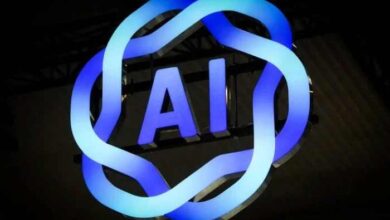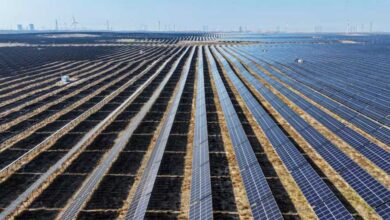Chinese President Xi Jinping took the centre stage at a meeting of the Asia-Pacific Economic Cooperation (Apec) on Saturday to push a proposal for a global body to govern artificial intelligence and position China as an alternative to the United States on trade cooperation.
The Apec is a consultative forum of 21 nations representing half of global trade, including the US, China, Russia and Japan. The summit, hosted by South Korea this year, unfolded under the shadow of rising geopolitical tensions and aggressive economic strategies — ranging from US tariffs to China’s export controls — that have pressured global trade.
Xi’s comments were the first by the Chinese leader on an initiative Beijing unveiled this year, while the US has rejected efforts to regulate AI in international bodies.
Xi said a World Artifical Intelligence Cooperation Organisation could set governance rules and boost cooperation, making AI a “public good for the international community”.
In remarks published by the official news agency Xinhua, Xi added, “Artificial intelligence is of great significance for future development and should be made for the benefit of people in all countries and regions.”
Chinese officials have said the organisation could be based in the commercial hub of Shanghai.
US President Donald Trump did not attend the Apec leaders’ summit in the South Korean city of Gyeongju, flying back to Washington directly after a meeting with Xi.
The two leaders’ talks yielded a one-year deal to partially roll back trade and technology controls that had spiked tension between the world’s two biggest economies.
In Trump’s absence, analysts had expected Xi to use the Apec meeting to promote China as champion for its own brand of multilateral cooperation on trade and economic development.
While advanced chips made by California-based Nvidia are central to the AI boom, China-based developer DeepSeek has rolled out lower-cost models taken up by Beijing in a push for what it calls “algorithmic sovereignty”.
Xi also urged Apec to promote the “free circulation” of green technologies, a cluster of industries from batteries to solar panels that China dominates.
Apec leaders call for shared trade benefits
Facing deepening fractures in the global trade order, Asia-Pacific leaders adopted a joint declaration that emphasised the need for resilience and shared benefits in trade as the annual Apec summit ended.
While Trump did not attend the summit, Washington’s views were still on display in the declaration, analysts said, which, unlike last year’s document, did not mention multilateralism or the World Trade Organisation (WTO).
“It is a result of member countries acknowledging, at least to some degree, that it will be difficult to restore a free trade order based on multilateralism and the World Trade Organisation,” said Heo Yoon, a professor of international trade at Sogang University in Seoul.
“We cannot deny anymore that there is a paradigm shift in the global trade order,” Heo added.
With Trump’s swift exit before the leaders’ summit, China positioned itself as a steady advocate of free and open trade, a role the US has dominated for decades.
However, Heo and analysts say the joint declaration suggests that member nations were wary of giving an impression that the US was undermining free trade while picturing China as a guardian of multilateralism.
“Few countries believe there can be a new trade order that excludes the US,” he said.
Xi announced that China will host the 2026 Apec summit in Shenzhen, a major hub for manufacturing, from robotics to electric car production.
Xi said the city of nearly 18 million had been a fishing village until it boomed as one of China’s first special economic zones in the 1980s.







